Video shows suffering of sex slaves, brutal war crimes
Updated: 2015-09-06 04:14
(China Watch)
|
||||||||
|
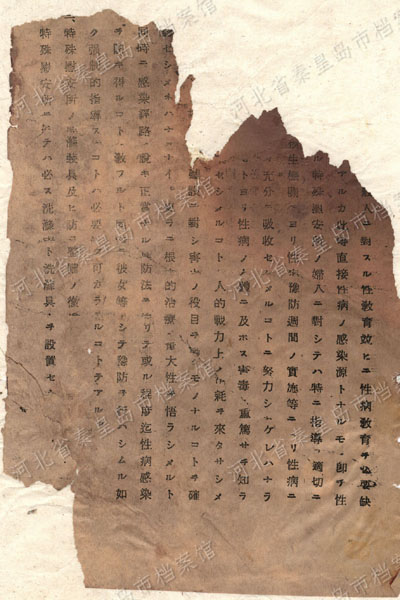 |
|
The State Archives Administration of China has a Japanese military report of 1943 on “comfort stations”. [Photo/Xinhua] |
China’s State Archives Administration (SAA) has released a series of videos documenting the experiences of sex slaves at the hands of the Japanese military over 70 years ago.
The eight-part collection was uploaded to the administration’s website over several days starting on Aug. 15, the anniversary of Japan’s surrender in 1945.
Japan made an incursion into northeastern China in September 1931 and launched a full-scale invasion on July 7, 1937. About 35 million Chinese soldiers and civilians were killed or injured in the war that followed.
In addition, an estimated 200,000 women were forced into sexual slavery by Japanese troops. These victims were known as “comfort women.”
Only a handful remains alive, and few have ever publicly talked about having been enslaved. Thousands took their secret to the grave without receiving an apology or compensation from Japan.
“These horrific, institutionalized acts of violence committed by Japanese invaders, rarely seen in the history of human civilization, constitute state crimes and a gross violation of the human rights of the victimized women,” the SAA said on its website.
“They are some of the most painful chapters in the annals of history.”
Japanese Prime Minister Shinzo Abe’s statement on Aug. 14 to mark the 70th anniversary of the end of World War II made no direct reference to the sex slaves.
The first in the video series quotes Japanese war criminal Ebato Tsuyoshi as he recalls a Japanese sergeant who took a woman as a slave during the invasion of Shandong peninsula. When food became scarce, he said the sergeant killed the woman and ate her flesh, which he shared with his squadron after telling them that it was regular meat from their battalion headquarters.
In a letter dated Feb. 1, 1941, Hideo Tomura, a soldier stationed in the central city of Kaifeng, wrote about the living conditions at a “comfort station managed by the army.”
Another document provided by Jilin provincial archives reflected the state of mind of a young Japanese soldier who had hoped to stay a virgin but, in the end, sought pleasure with Korean “comfort women”, ultimately contracting a venereal disease.
The released documents also included Japanese military reports that summarized the situation at “comfort facilities,” such as the numbers of troops and women. In a report dated Feb. 19, 1938, Shigeru Oki, commander of the Japanese Military Police Brigade for Central China, said forces were equipped with “comfort women” in proportion to the soldiers: 25,000 Japanese troops were stationed in Nanjing at the time along with 141 “comfort women”, meaning one woman for 178 soldiers.
The SAA has also published 31 handwritten confessions from Japanese war criminals who took part in the conflict between 1940 and 1945.
One of them, Sadakichi Yamaguchi, born in 1920, detailed in his 1954 confession how he and a friend raped a 30-year-old woman in Shandong province in October 1942. He also recounted that, in February 1943, he saw a soldier named Matsui “hack a Chinese woman to death” and then stab her crying child, also in Shandong.
In addition, he confessed that, in September 1944, he “bloated” a Chinese villager aged about 35 “with cold water.” The man died two days later.
The previously unreleased confessions detail many crimes by the Japanese, including killing, enslavement and poisoning of Chinese people, as well as using biological and chemical weapons on live human subjects.
China Daily-Xinhua
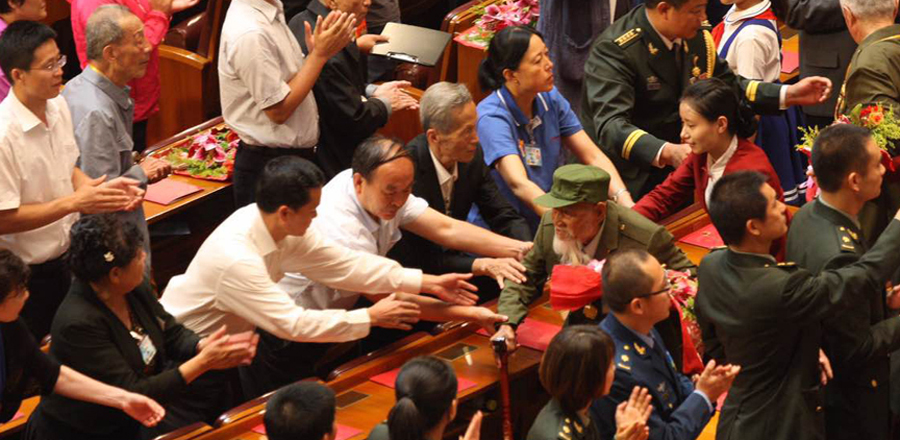
 Veterans attend V-Day anniversary gala show
Veterans attend V-Day anniversary gala show
 Military helicopters write number 70 high in the sky
Military helicopters write number 70 high in the sky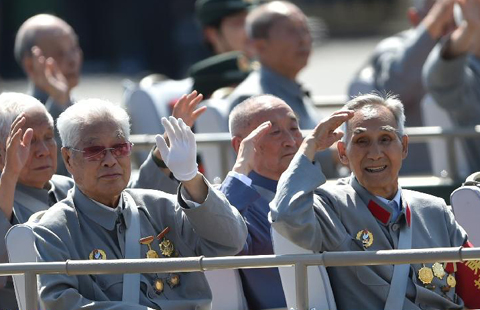
 Salute to veterans
Salute to veterans
 Xi attends the ceremony with other leaders
Xi attends the ceremony with other leaders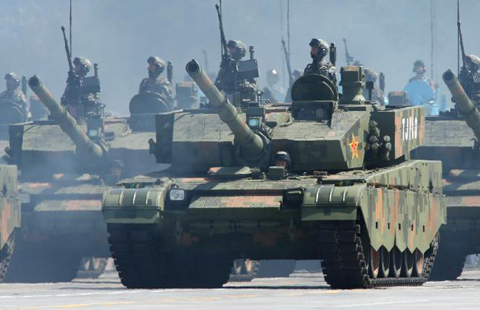
 Armored vehicles roll down the parade in huge roar
Armored vehicles roll down the parade in huge roar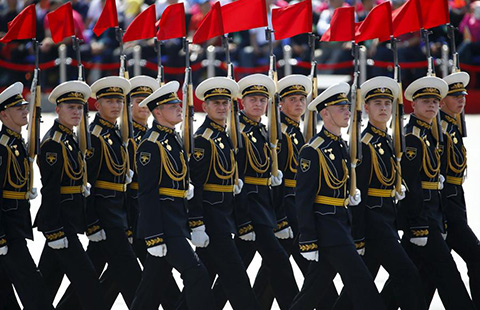
 Foreign troops celebrate with Chinese comrades
Foreign troops celebrate with Chinese comrades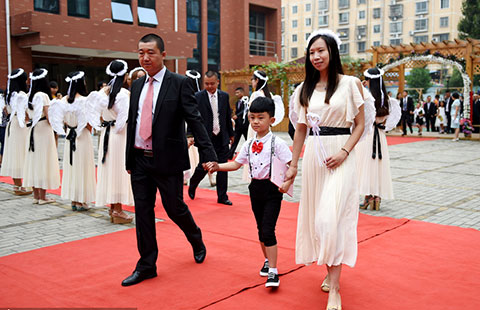
 Red carpet ceremony for first grade kids
Red carpet ceremony for first grade kids
 Kashgar old city in Xinjiang is well preserved
Kashgar old city in Xinjiang is well preserved
Most Viewed
Editor's Picks

|

|

|

|

|

|
Today's Top News
Sino-Russian investment fund eyes more deals
Predicting Internet's future without a crystal ball
Silk Road Fund to expand ties with lenders
Intl community echoes Xi's speech at V-Day commemoration
Envoy hails New York resolutions
Nation's military power grows but still trails behind
China to cut troops by 300,000: President Xi
Springfield gets Chinese railcar plant
US Weekly

|

|







